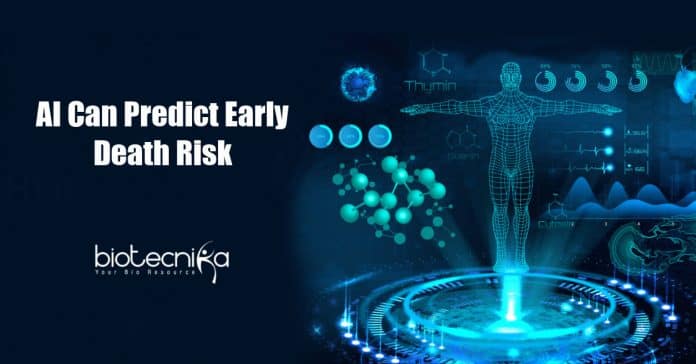Predicting early death risk employing AI tools
Scientists at Geisinger have ascertained that a computer algorithm developed utilizing echocardiogram videos of the heart can forecast death within a year.
The algorithm – an example of artificial intelligence (AI) or machine learning – outperformed various other analytically utilized prediction methods, consisting of the Seattle Heart Failure score and cohort equations. The research reports are released in the journal Nature Biomedical Engineering.
Asst. Prof. Chris Haggerty, Ph.D., co-senior author, Dept of Translational Data Science and Informatics, Geisinger stated that they were delighted to find that AI can leverage unstructured datasets like clinical images and videos to enhance a broad spectrum of clinical prediction designs.
Imaging has become one of the most data-rich elements of the electronic health record (EHR) as it is crucial for treatment decisions in many medical specialties. E.g., 3,000 images are produced in just one 1 ultrasound heart, and doctors don’t get adequate time for analyzing it within the context of countless other diagnostic info. This constitutes a significant chance to utilize technology, like artificial intelligence, to manage and assess this data and eventually offer smart computer assistance to doctors.
The research group utilized specific computational devices to qualify
the AI model on 812,278 echocardiogram videos collected from 34,362 patients across the earlier decade. The research contrasted the outcomes of the model to cardiologists’ forecasts based upon many studies. The following review revealed that when supported by the model, cardiologists’ prediction precision enhanced by 13%. Leveraging approximately 50 million photos, this research represents one of the most comprehensive medical image datasets ever released.Alvaro Ulloa Cerna, Ph.D., co-author, and senior data scientist, Dept of Translational Data Science and Informatics, Geisinger stated that their objective is to establish computer algorithms to enhance patient care. They are excited that their algorithm can help cardiologists improve their predictions about patients – because decisions about treatment and interventions are dependent upon these kinds of scientific predictions.
Predicting early death risk employing AI tools






























